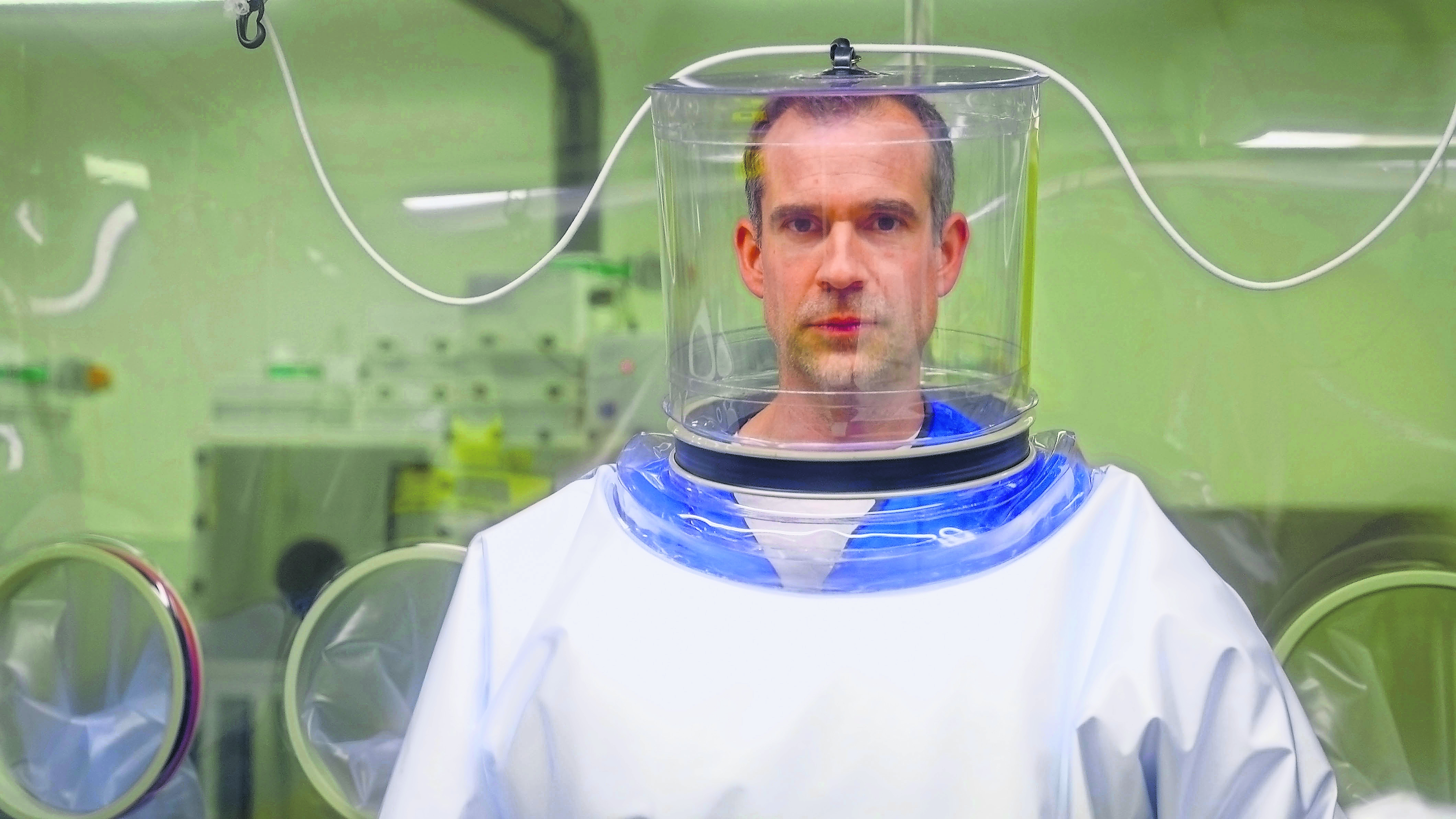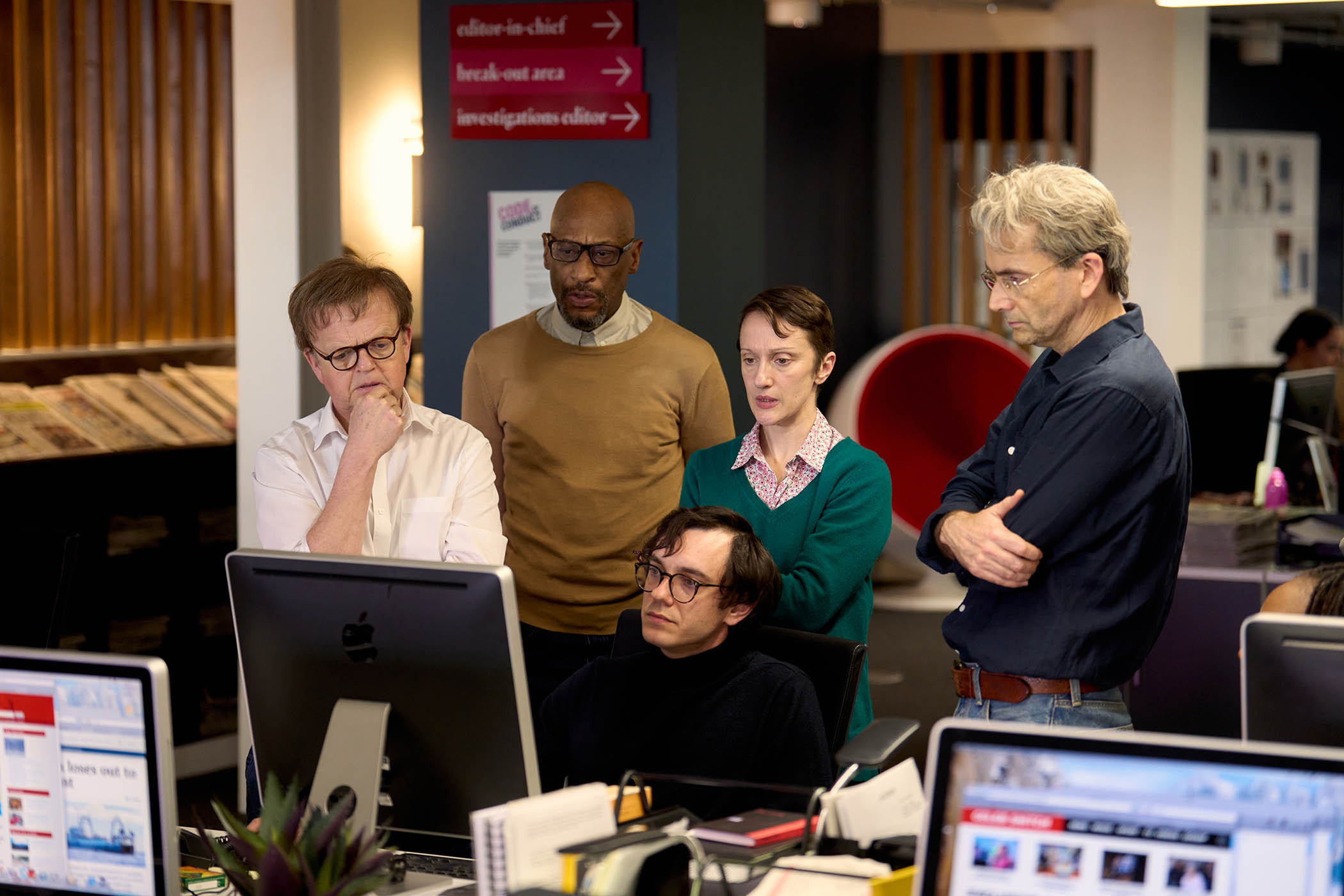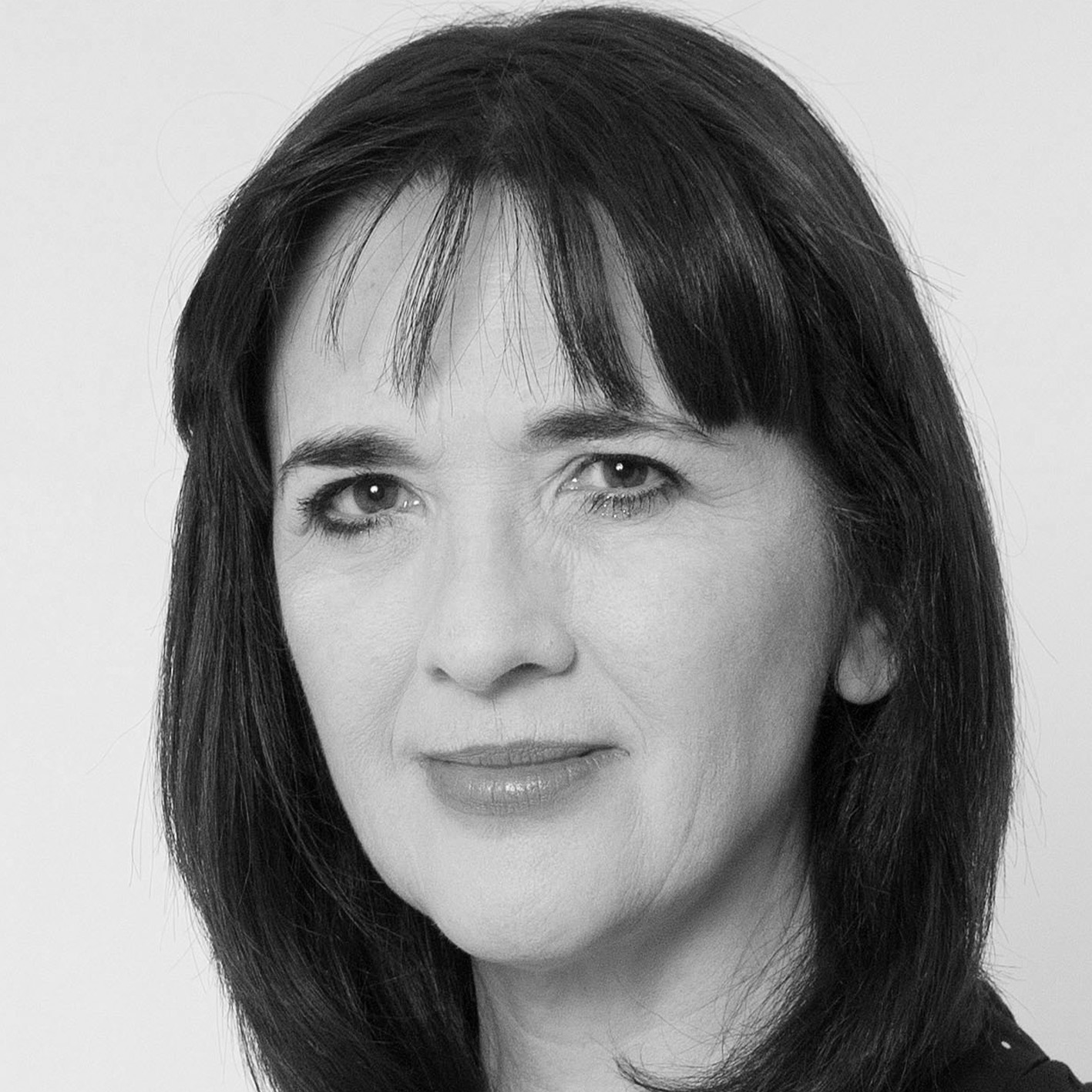The Hack is television on a mission. Written by Jack Thorne (Adolescence, Help) with Annalisa Dinnella, and set between 2002 and 2012, it details the Guardian journalist Nick Davies’s fight to expose endemic phone-hacking at Rupert Murdoch’s News International – now News UK – and its Sunday tabloid, News of the World, and the unethical connections between the media, politicians and police. A crusade that led to convictions, the closure of News of the World, the Leveson inquiry and billions in out-of-court settlements.
The opening scene of the seven-part drama depicts Davies (David Tennant) writing and deleting sentences for his 2014 book, Hack Attack (“This is the story of the biggest newspaper scandal in recent British history”). Davies is then shown in 2008, promoting another book, Flat Earth News, on Radio 4’s Today programme and bemoaning the state of the media: “The logic of journalism has been overwhelmed by the logic of commercialism.”
We also see him in the Guardian’s office with his friend and then editor Alan Rusbridger (Toby Jones, submerged in a bushy hairpiece), who, after some hesitation (“It’s just another story of journos behaving badly”), agrees to Davies pursuing the investigation. Not just looking into the crimes committed, including against the actor Sienna Miller and publicist Max Clifford, but also the intimidation – the “monstering” – of victims into silence.
Tennant, a victim of hacking himself, is wholly transformed as Davies: all greying hair, Boomer jeans and meticulous English accent. The character is dogged, driven – by the story, but also by childhood demons. He keeps breaking the fourth wall, talking to camera. In fact, as directed by Lewis Arnold (Des), The Hack plays frequently with form; there are celebrity cameos, newspaper cartoons bursting into life, characters pursued by Mexican musicians and more.
The Hack’s other main strand stars an excellent Robert Carlyle as Det Ch Supt Dave Cook, who is assigned to reopen the 1987 murder of the private investigator Daniel Morgan. It’s more restrained, more in line with ITV’s campaigning drama Mr Bates vs the Post Office (from the same production company, and also starring Jones).
With a robust cast – watch out for Dougray Scott playing Gordon Brown – The Hack is about intrusion, criminality, ruined lives, tabloid dominance and high-level cover-ups, what Rusbridger calls “the death of self-regulation”, and lack of resolution. (The second part of the Leveson inquiry was scrapped by the Conservatives.)
Away from News International, other newspapers are shown to be slow to support the story: the media and the public are finally galvanised by the revelation that the phone of Milly Dowler, the 13-year-old schoolgirl who was murdered in 2002, was hacked. Davies’s reporting on her case proved partially inaccurate, which he admits to camera: “I had damaged myself and I’d exposed the Guardian.”
This constant breaking of the fourth wall lends urgency but can sometimes derail the seriousness of the subject. Other segments feel like unnecessary padding. Nevertheless, The Hack is an interesting study of power, corruption, concealment and justice too long coming.

‘Richly scripted, grimy with period detail’: Anthony Boyle as Arthur and Louis Partridge as Edward in House of Guinness
On Netflix, there’s Steven Knight’s new eight-part period drama, House of Guinness, a “fiction inspired by true stories” about the 19th-century brewing dynasty. Set in Dublin, it begins with the death of patriarch Benjamin Guinness and the reluctant succession of his gay eldest son Arthur (Anthony Boyle), who must run the empire with his ambitious younger brother Edward (Louis Partridge), while their married sister, Anne (Emily Fairn), and their dissolute middle brother, also called Benjamin (Fionn O’Shea), are overlooked.
Is this Peaky Blinders with a frothy head? To some extent, yes. There are signature Knight touches; ripe language (“I am Sir Arthur Guinness and this is my fucking city!”), illicit sexual assignations, female suffering, with petticoats sodden by a miscarriage (“I thought you Guinnesses would bleed black”), working-class desolation (graves from the 1845 famine) and bursts of 21st-century Irish music (including by Fontaines DC and Kneecap). And of course, there is relentless violence, delivered mainly by the Guinness henchman Sean Rafferty, played by James Norton with mischievous sociopathy.
In terms of the Fenian rebellion here, the Irish Republican Brotherhood is mainly represented by the Fenian leader’s sister, Ellen Cochrane (Niamh McCormack), whose grudging cooperation with Edward becomes something more. While Arthur follows in his father’s footsteps to become an MP, his aunt (Dervla Kirwan) schemes to see all three brothers married off: “What absurd times we live in. A woman with plans.”
Perhaps predictably, the series is awash with Guinness (the “elixir of the soul”). The viewer is treated to the story of the harp logo, the building of houses for the poor and even a demonstration of how to properly pour. Talk about product placement. Such moments are indistinguishable from misty-eyed adverts. For the second series – which is surely coming – the relentless plugs must desist.
Apart from that, it’s fine viewing: richly scripted, grimy with period detail. If Peaky Blinders comparisons must be made, it is missing a Tommy Shelby and a Polly Gray, but there are strong characters. Boyle particularly resonates as the defiant Arthur: “I am a wild enemy to have!”
Rejoice, for Will Smith’s Slow Horses (Apple TV+) returns for series five. It is based on the fifth of Mick Herron’s Slough House novels, London Rules, and the team, including Jack Lowden as River and Aimee Ffion-Edwards as Shirley, is mourning the death of Marcus (Kadiff Kirwan) in the previous season. In the meantime, resident toxic incel Roddy Ho (Christopher Chung) has acquired a girlfriend who isn’t made of pixels.
While one plot deals with escalating terrorist activity, another concerns nationalism, featuring a Nigel Farage-type figure (Christopher Villiers) opposing a Sadiq Khanesque London mayor, played by Nick Mohammed (Ted Lasso).
Elsewhere, it’s business as usual. Part of the fun of Slow Horses is monitoring the increasingly decayed state of Slough House head Jackson Lamb (Gary Oldman): this time, he has the look of something that’s been excreted from some terrible mythical animal. But the quintessential Lamb charm remains: “Open the windows. I’m off for a dump.” With series six and seven already commissioned, I consider it a cultural miracle that Slow Horses remains this funny and sharp.

Barbara Ellen’s watch list
Disease X: Hunting the Next Pandemic
(BBC Two)
Disconcerting documentary in which virologist Chris van Tulleken, above, muses on “Disease X”: how it could trigger another pandemic and what it may have in common with previous deadly viruses.
Nine Dead Bodies in a Mexican Morgue
(BBC One)
Created by Anthony Horowitz, this is the story of survivors of a plane crash who don’t all survive for long. A thriller with an undercurrent of Agatha Christie.
Married at First Sight UK
(E4)
It’s back; the show that weds complete strangers and then fetches the popcorn for the fallout. High-calibre reality trash.
Photograph by ITV/Ben Blackall/Netfilx
Newsletters
Choose the newsletters you want to receive
View more
For information about how The Observer protects your data, read our Privacy Policy

